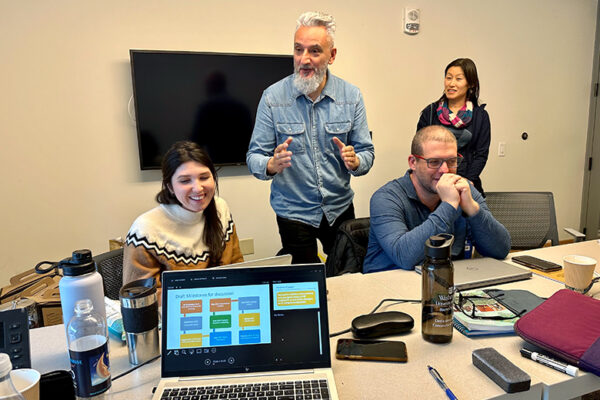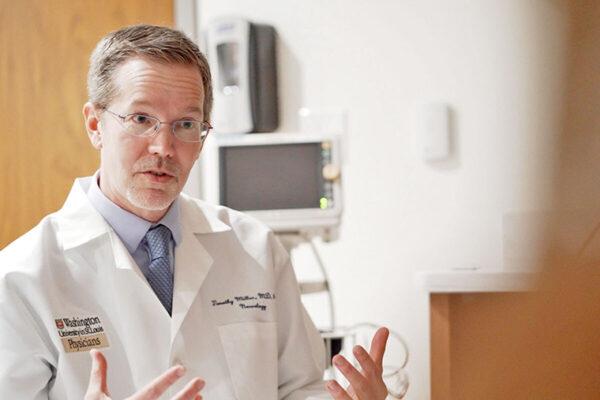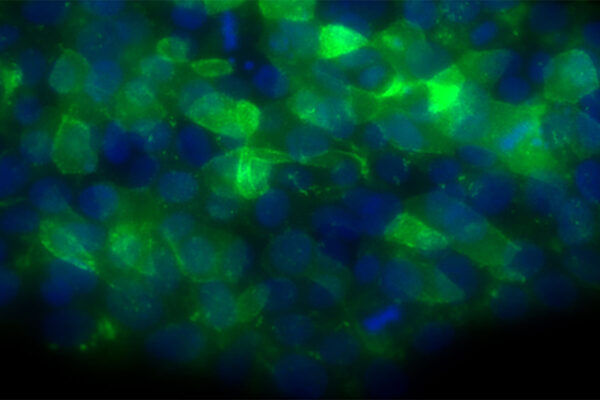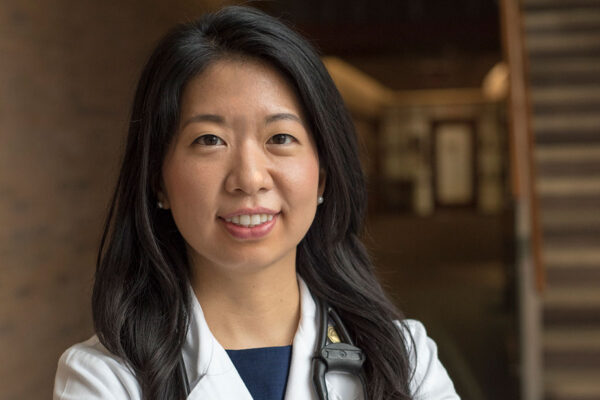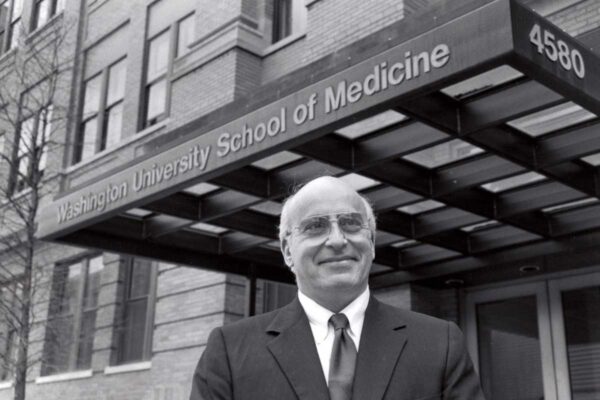Reis hosts Lancet meeting on climate change, health
Rodrigo Reis, a professor of public health and interim co-dean of the Brown School, recently led a three-day writing retreat for public health scholars as part of The Lancet series on physical activity and public health.
COVID-19 infections raise risk of long-term gastrointestinal problems
People who have had COVID-19 are at increased risk of developing gastrointestinal (GI) disorders within a year after infection, according to an analysis of federal health data by researchers at the School of Medicine and the Veterans Affairs St. Louis Health Care system.
Dy named Kappa Delta Young Investigator Award winner
Christopher J. Dy, MD, an associate professor of orthopedic surgery at the School of Medicine, is the recipient of the 2023 Kappa Delta Young Investigator Award for his research on brachial plexus injuries.
Adding med to antidepressant may help older adults with treatment-resistant depression
For older adults with clinical depression that has not responded to standard treatments, adding the drug aripiprazole to an antidepressant they’re already taking is more effective than switching from one antidepressant to another, according to a study led by the School of Medicine.
Miller receives Rainwater Prize for Brain Research
Timothy Miller, MD, PhD, the David Clayson Professor of Neurology at the School of Medicine, has been named a winner of the Rainwater Annual Prize for Outstanding Innovation in Neurodegenerative Disease Research.
Possible treatment strategy identified for bone marrow failure syndrome
School of Medicine researchers have identified a possible treatment strategy for some bone marrow failure syndromes. These syndromes lead to an increased risk of developing dangerous infections, anemia and an increased risk of blood cancers.
Kwon named chair of epidemiology society committee
Jennie H. Kwon, DO, an assistant professor of medicine at the School of Medicine, has been named head of the Society of Healthcare Epidemiologists of America Research Committee.
William A. Peck, former medical school dean, 89
William A. Peck, MD, a former executive vice chancellor and dean of the School of Medicine, died peacefully, surrounded by family, Feb. 22 at his home in St. Louis County, Mo. He was 89.
Cancer genomics database recognized as global biodata resource
A vast database of cancer genomics knowledge started by Washington University scientists has been named a Global Core Biodata Resource by the Global Biodata Coalition. It’s led by twin brothers Malachi Griffith and Obi Griffith, both associate professors of medicine.
Cells take on dual identities
Cells migrate to different tissues for a variety of reasons, including organ development, tissue repair and the spread of cancer. Researchers led by Amit Pathak at the McKelvey School of Engineering have found unexpected activity in the nucleus of healthy cells that provides new insight into cell mechanics.
Older Stories
